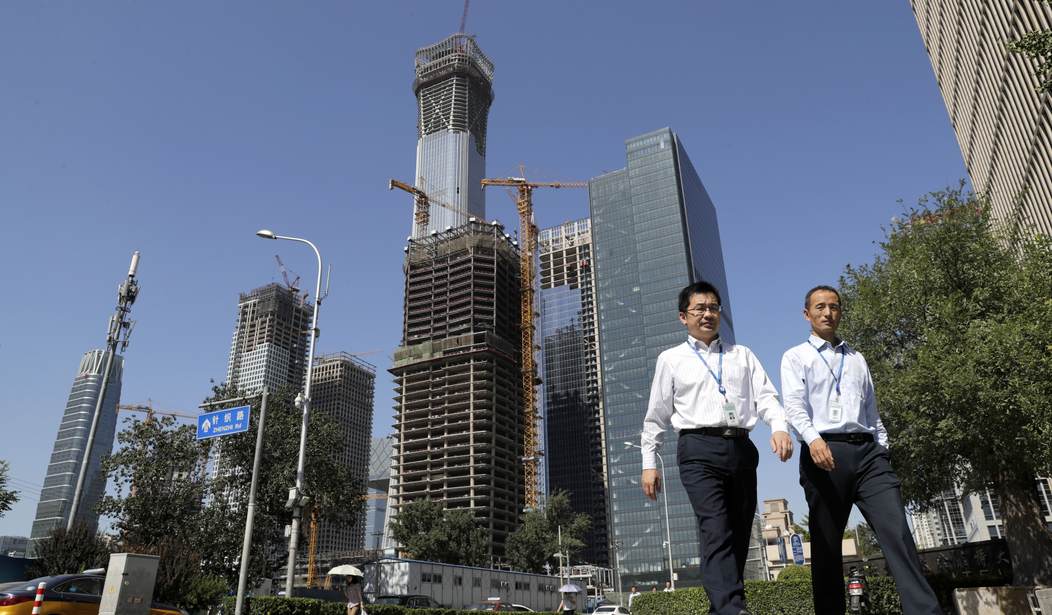I saw this on Twitter today. Apparently this clip is circulating in the Chinese internet right now. Buy more property, comrades!
If this is real, the Chinese are screwed. https://t.co/gj8PmvkJVs
— Robert Tracinski (@Tracinski) August 17, 2022
This is a response to the real estate crisis that has been brewing in China for months. While it may sound odd to encourage people to buy multiple homes, it’s not that unusual in China. Limits on foreign investment mean a lot of people have no better place to put their money than in real estate. The problem with owning 2, 3 or 4 properties is that ultimately there are more homes than people who need them. At present there are about 50 million empty apartments in China.
Liu Hong and her parents own four homes in different cities across mainland China. At any one time, as many as three of them are unoccupied.
The 36-year-old, who works as an auditor in Shanghai, bought a flat in her hometown of Harbin in northern Heilongjiang province 13 years ago for 320,000 yuan (US$47,500)…
Liu bought herself a two-bedroom apartment in Shanghai for 2.6 million yuan when the market was sizzling in 2015, after deciding to settle down in the city.
When both Harbin and Shanghai are too cold, between October and April, her parents travel to Haikou, in southern China’s Hainan province, where they own a small holiday home.
“It is not easy to find a tenant or buyer in . So we just leave our old apartments there, empty for years. Theoretically, our family alone has two or three homes no one stays in throughout the year,” Liu said…
The average vacancy rate across mainland China is 12.1 per cent, according to BRI’s report, released earlier this month. That compares with 11.1 per cent in the US and 9.8 per cent in Australia, and is far higher than in the UK, where only 0.9 per cent of houses are empty.
Naturally, when the economy is facing a downturn, as it is now in China thanks in part to zero COVID, people decide to put some of those empty properties on the market. But because there is such a huge supply it creates a glut that further drives down values.
That real estate market, which propelled China’s rapid growth ever since the 2008 financial crisis, is in the midst of a housing bust that has now recorded its 11th straight month of price declines…
New home prices in 70 cities, excluding state-subsidized housing, declined in July by just over 0.1% from June, according to China’s National Bureau of Statistics.
Last year, China’s largest real estate company defaulted on its debt. And that default meant that many people who had already invested in a new apartment were no longer certain they would ever be built.
With Evergrande, the risk is high: A sudden unwinding of the company could hit the country’s financial system or, potentially, the many homeowners in China who have already paid for Evergrande apartments that are yet to be built…
These defaults are testing a long-held understanding among foreign investors that Beijing would ultimately step in to save its biggest companies.
For years, many investors gave money to companies like Evergrande on the basis of this assumption. More recently, the authorities have shown greater willingness to let companies fail in order to rein in China’s unsustainable debt problem.
The response from some Chinese buyers was to simply stop paying the mortgages on properties they believed would no longer be completed as promised.
As of July 12, homebuyers in 22 Chinese cities had threatened to stop their mortgage payments over construction delays and sinking real estate prices, affecting 35 projects, Citigroup analysts wrote in a note. As of Monday, that figure had surged to over 80 cities, affecting over 200 projects, according to data from E-house China Research and Development Institution, a Chinese real-estate database.
Homebuyers’ discontent is spreading both offline and online. Now, Chinese online platforms are deleting crowd-sourced documents and social media posts tabulating the number of mortgage boycotts and project delays nationwide, according to a Bloomberg report.
In China, property developers rely on pre-sale funding, whereby buyers pay upfront for unbuilt apartments, analogous to interest-free loans for the building company. The current mortgage boycott is rooted in developers’ dependence on pre-sales for funding, Alicia García-Herrero, chief Asia-Pacific economist at French investment bank Natixis, tweeted on Friday. “For households who have pre-paid unfinished units due to developers’ defaults, it makes sense not to pay,” she wrote.
Obviously, stopping those payments makes it more likely the developers will not be unable to finish their projects. That in turn could convince more people to stop paying mortages. It’s a cycle that is leading China into a bust.
The real estate bust isn’t the only headwind China is facing right now. Large parts of the country are still dealing with zero COVID lockdowns and there is evidence that is leading to a broader economic downturn.
Figures for both retail sales and industrial production grew last month compared with the same month last year, rising 2.7 percent and 3.8 percent, respectively. But they fell well short of forecasts of 5 percent and 4.6 percent growth, and both metrics slowed compared with increases recorded in June, according to the National Bureau of Statistics…
“The momentum of economic recovery has slowed,” government spokesman Fu Linghui said during a news conference, the Associated Press reported. “More efforts are needed to consolidate the foundation of economic recovery.”
In short, China is facing a slightly different mix of problems than the rest of the world right now but they are still struggling.








Join the conversation as a VIP Member